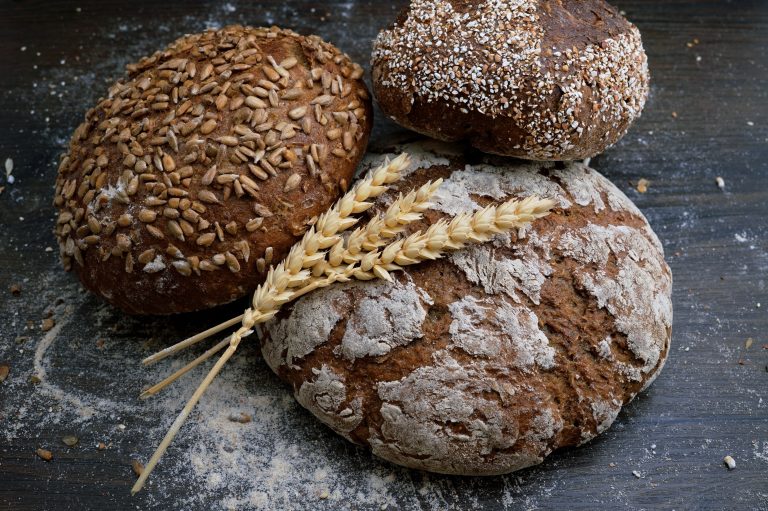If you’re having a hard time concentrating, remembering things, and experiencing mental clarity issues that coffee just can’t solve, you might be experiencing brain fog.
This issue can present itself in a couple of different ways. Maybe you’re finding that you can’t concentrate at work and are spending more time staring blankly at your computer screen than being able to really get anything done. Your short-term memory might be affected, and you’re forgetting things that you normally would have no issue remembering. You might feel like you are literally in a fog and just can’t pull yourself out of it.
It’s frustrating to find that you just aren’t feeling like yourself and your work and every day routine are affected because of it. You might be desperately slamming coffee and energy drinks and getting a temporary buzz, but still just not being able to think straight.
The answer might lie in your diet and lifestyle. Your body is a finely tuned machine that needs the correct levels of dietary nutrients to function properly – your brain fog might indicate that your diet and lifestyle need a shakeup.
So before you slam yet another cup of coffee, read on!
Dehydration
Let’s start with an easy one.
Neglecting drinking your water and staying hydrated can impair your ability to pay attention and your overall cognitive performance1. Even if you feel like you are drinking an adequate amount of water, you may be counteracting it by drinking excess amounts of caffeine. Caffeine is a diuretic, meaning that it can lead to dehydration, So drinking tons of coffee or other caffeinated beverages might actually be hurting you instead of helping!
To ensure that you are getting enough hydration in your diet,
- Make sure you are drinking enough water. While there are no current recommendations for the amount of water you should be drinking, do make sure to keep a glass or bottle of water handy to keep yourself hydrated throughout the day.
- Fortify with electrolytes. If you need even more hydration (say, you’re also drinking diuretic liquids like caffeine or alcohol, or if you are an active athlete who works up a sweat) you can fortify with electrolytes like potassium. Avoid uber-sugary sports drinks and go instead for more natural options like bananas and coconut water (just watch the added sugar).
(The Right) Carbohydrates
Contrary to what has unfortunately become popular belief, carbohydrates do not need to be avoided at all costs. In fact, having a healthy serving of carbohydrates in your diet is necessary for properly powering your brain – If you’ve ever been on a low-carb diet and found that you were experiencing brain fog, you know this to be true. This all comes down to whether you are eating the correct carbohydrates to give your brain the energy that it needs to perform at its optimum.
Carbohydrates break down into glucose, which is your brain’s primary source of energy, and it takes twice as much energy to power this muscle than any other part of your body. You might be familiar with the idea that consuming sugar can give you a quick “jolt” of energy, but this can quickly lead to the dreaded “sugar crash” and does nothing to brain fog long-term. Eating excess simple sugars over long periods of time can also result in insulin resistance and obesity.
If you want to properly fuel your brain, you should instead be incorporating complex, slow-absorbing carbohydrates that are heavy in fiber, vitamins, and minerals. Some good examples of this include:
- Whole Grains: Some carb switches can be as easy as looking for “whole grains” on your pasta or cereal packages. Avoid heavily processed, or “refined” grains like white rice and bread, opting instead for the whole grain versions – the grains on these offerings still have their nutritious and fibrous hull.
- Fruits: In moderation, fruit can be a good carbohydrate source with tons of vitamins and minerals. To get the most out of your fruits, make sure to keep the skins on your apples and pears, and look for fruits that are inherently heavy on fiber, like raspberries.
- Legumes: A staple in many healthy diets, legumes contain good amounts of both proteins and fiber, making them an excellent and balanced source of slow-absorbing carbohydrates.
It’s important to note that, while you do want to cut down on your sugar intake, artificial sugar may actually just contribute even more to brain fog. They may have a negative affect on your gut bacteria, which could in return hurt your production of serotonin, a mood regulating neurochemical2. So think twice about replacing your sugary coffee creamer or energy bar with an artificial sugar substitute.
Vitamin B12
Vitamin B12 also plays a role in the production of serotonin. Vitamin B12 levels have long been associated with brain function. Studies have shown that there is an association between deficient and low-normal levels of Vitamin B12 and instances of depression, while increasing B12 levels helped people respond better to their antidepression medications3.
The main sources of Vitamin B12 come from animal sources – think meats and dairy. The obvious answer to increasing your Vitamin B12 would be to increase your consumption of meat and dairy, but if you follow a vegan or even vegetarian lifestyle, you may need to supplement your diet with a Vitamin B12 shot or Vitamin B complex in order to obtain adequate vitamin levels.
Vitamin D
Vitamin D may also play a role in your brain’s ability to process and retain information. Some studies have suggested that higher levels of Vitamin D are correlated with increased neuroprocessing abilities, while those with lower levels displayed poorer memory abilities and cognitive performance4.
Vitamin D deficiency is relatively common in the United States – in fact, the Nutrition Facts Label was updated in 2020 order to display Vitamin D levels present in food and increase consumer awareness5. You can get Vitamin D from adequate sunlight exposure, but if you suspect that you are not getting enough from sunning alone, fatty fish is a good source. A fish oil pill might be a good idea if seafood is not a regular part of your diet.
It’s important to note that Vitamin D is a fat-soluble vitamin that cannot be absorbed if you are not receiving an adequate amount of healthy fat in your diet. If this is the case in your diet, add a little olive oil to your veggies or throw in a portion of avocado to increase your healthy fat intake.
Exercise
If you have been sitting at your desk for hours and feel like you just cannot process another piece of information, you might want to start moving. Getting an adequate amount of exercise, in addition to all the fitness and cardiovascular benefits, can be a quick mood booster and combat the oxidative stress that leads you to have a hard time focusing 6.
Take a quick walk around your block during lunchtime, set aside five minutes every hour to stand up and stretch, or start off your day with a quick jog to get the blood flowing and the cobwebs cleared.
A Word On Nootropics
If you’re unfamiliar with the term, nootropics are supplements and drugs that claim to increase focus and overall cognitive performance. They can range from substances that you’re probably very familiar with (caffeine, anyone?) to illegally obtained prescription drugs that do much more harm than good when not used for their intended purpose (ie, Adderall).
Unfortunately, it’s not proven that popping a pill is the end-all-be-all of improving your mental capacity7. Just like with most dietary supplements, statements are not evaluated by the FDA and there have been no real scientific proof that using nootropics will improve your brain function. So if you’re thinking about going this route to improve your brain function, make sure that you are not making it your only option and becoming dependent on them.
In conclusion, addressing your brain fog could be as easy as making sure you’re eating a nutritious, balanced diet and moving around a little more.
Your brain is the command center for the rest of your body, and every health decision can aid or impair its performance.
If you feel like you are doing everything right and are still experiencing less-than-optimum brain capacity, you may want to consult with a doctor to rule out other health conditions that are affecting your ability to concentrate.
Here’s to a healthier, more productive week!
Sources:
1. Wittbrodt, M.T., & Millard-Stafford, M. (2018). Dehydration Impairs Cognitive Performance. Medicine & Science in Sports & Exercise, 50(11), 2360–2368. https://doi.org/10.1249/mss.0000000000001682
2. Dow, M. (2016). The Brain Fog Fix: Reclaim Your Focus, Memory, and Joy in Just 3 Weeks (Illustrated ed.). Hay House Inc.
3. Syed, E. U., Wasay, M., & Awan, S. (2013). Vitamin B12 Supplementation in Treating Major Depressive Disorder: A Randomized Controlled Trial. The Open Neurology Journal, 7(1), 44–48. https://doi.org/10.2174/1874205×01307010044
4. Devere, R. (2014, January/February). Cognitive Consequences of Vitamin D Deficiency. Practical Neurology. https://practicalneurology.com/articles/2014-jan-feb/cognitive-consequences-of-vitamin-d-deficiency
5. Changes to the Nutrition Facts Label. (2020, July 10). U.S. Food and Drug Administration. https://www.fda.gov/food/food-labeling-nutrition/changes-nutrition-facts-label
6. Radak, Z., Kumagai, S., Taylor, A. W., Naito, H., & Goto, S. (2007). Effects of exercise on brain function: role of free radicals. Applied Physiology, Nutrition, and Metabolism, 32(5), 942–946. https://doi.org/10.1139/h07-081
7. Brody, B. (2019, July 30). What Are Nootropics? WebMD. https://www.webmd.com/vitamins-and-supplements/features/nootropics-smart-drugs-overview


